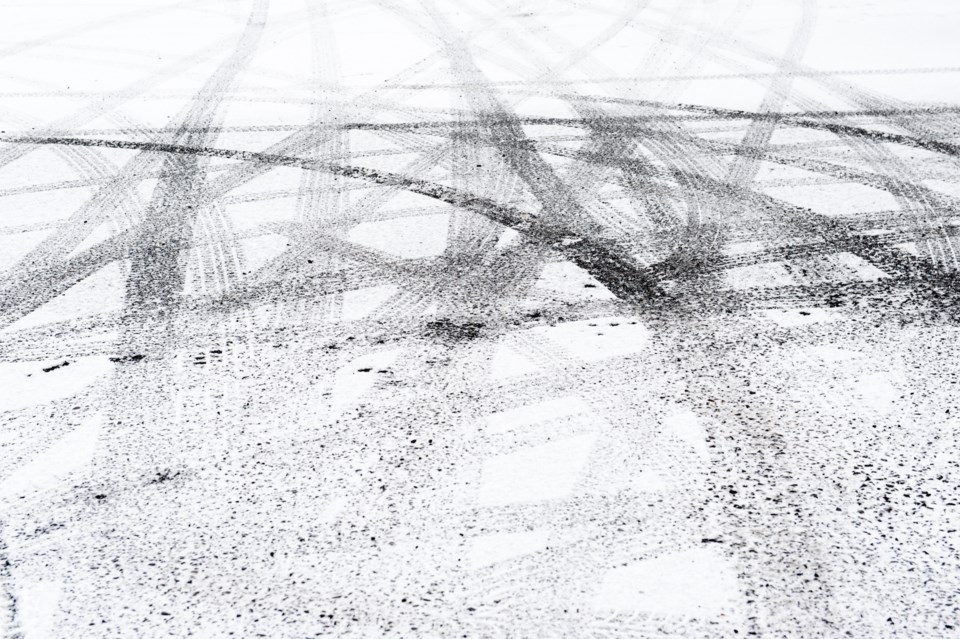When officers arrived at the Pine Street location at 2:39 a.m. on Jan. 14, 2016 they found Aron Byers asleep behind the wheel of his running vehicle, which was up against a snowbank.
The passenger side door was open, and the pickup was still in drive, Ontario Court Justice Romuald Kwolek heard during a hearing that took place in December 2017 and July of this year.
The officers put the vehicle in park, turned it off and awoke the accused, who was described as incoherent, making no sense and speaking "gibberish," and was unsteady on his feet.
At 2:43 a.m., Const. Spencer Guild charged him with impaired driving, after deciding he had reasonable and probable grounds to arrest him and make a breath demand.
Byers' lawyer Don Orazietti filed an application under the Canadian Charter of Rights and Freedoms challenging the officer's actions.
He maintained that Guild didn't have reasonable and probable grounds to request a breath test and the demand resulted in an illegal seizure of the samples.
In a 13-page written decision, which Kwolek released Tuesday, the judge concluded Byers' rights were violated, but suggested the breach was a technical, minimal one that didn't warrant excluding the evidence.
As a result, Byers was convicted of impaired driving after assistant Crown attorney Marie-Eve Talbot told the court he had breathalyzer readings of 207 and 190 milligrams of alcohol in in 100 millilitres of blood.
Kwolek imposed a $1,950 monetary penalty — a $1,500 fine and a $450 victim surcharge — along with a one-year driving prohibition.
Orazietti told the court his client was going through an extremely difficult situation at the time of the incident, but with the assistance of his employer has rehabilitated himself.
He called Byers "one of the most polite gentlemen I've met, a likeable and nice guy."
Guild testified during a voir dire on the Charter application, outlining factors that justified his grounds for the arrest of the man he believed was very intoxicated.
He cited the vehicle's location, off the road in a snowbank, as well as the accused's condition — Byers was hard to wake up, was unsteady on his feet when he got out of the pickup and wasn't making sense.
The officer indicated that when he made the demand and arrested the accused he didn't note any odour of alcohol or other "standard indicia," such as glossy eyes, of impairment.
Orazietti argued that Guild took an impermissible shortcut and made the breath demand before he had the requisite grounds.
Kwolek said in his decision that the circumstances surrounding the incident, including the accused's gross signs of impairment, were consistent with a number of possibilities, such as the accused suffered from fatigue and fell asleep, had some health ailment, was impaired by some drug or was impaired by alcohol.
He concluded that the Crown had not satisfied its onus in proving the arrest, the intoxilyzer demand and the resultant breath samples didn't violate the accused's Charter rights.
Disregarding Charter rights is serious, the judge said.
"However, I do not find that there was deliberate and egregious police conduct that disregarded the rights of the accused."
At worst, it could be said that the officer should have waited longer to seek indicia of alcohol impairment, but "a smell of alcohol is not an absolute prerequisite for reasonable and probable grounds," Kwolek indicated.
A second officer at the scene had observed the odour of alcohol and the accused's red, glassy eyes, he said.
"Overall I would suggest that the nature of the breach is technical."
Kwolek said this wasn't a case of an officer randomly pulling over a vehicle or improperly stopping or targeting a vehicle for no valid reason.
The police had gone to the parking lot after receiving a call from a civilian who was concerned about the man's health and safety, the judge noted.
The pickup was in a public place, parked against a snowbank, which prevented the running vehicle from going any further, in -25 C weather, "possibly putting the accused's health at risk."
"Reviewing the totality of the evidence in this case, I am not convinced that the admission of the evidence would bring the administration of justice into disrepute," Kwolek concluded, dismissing the defence application to exclude the evidence.
EDITOR'S NOTE: SooToday does not permit comments on court stories
